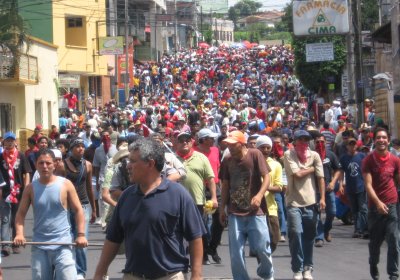On June 28 last year, democratically-elected Honduran President Manuel Zelaya was overthrown in a US-backed military coup.
Zelaya had upset US and Honduran corporate interests with policies such as blocking privatisation, increasing the minimum wage and joining the anti-imperialist Latin American bloc led by Venezuela and Cuba, the Bolivarian Alliance for the Americas (ALBA).
But it was Zelaya’s decision to grant a demand of the social movements and begin a democratic process towards rewriting Honduras’s pro-elite constitution that led directly to the coup.
Manuel Zelaya
Repression and resistance. These two words sum up Honduras today.
There is truly terrible repression — reminiscent of the Central American “dirty wars” run by US-trained militaries in the 1980s.
But there is also unprecedented resistance that has mobilised a previously compliant majority.
This is the situation that exists in the aftermath of the June 28 military coup last year that overthrew the elected president, Manuel Zelaya. Zelaya’s crime was to agree to the demands of a united front of social movements to start a democratic process of writing a new constitution
- Previous page
- Page 2

